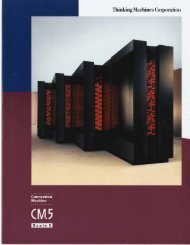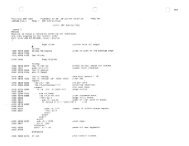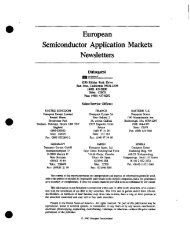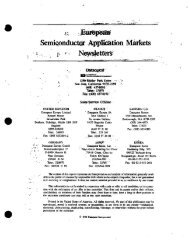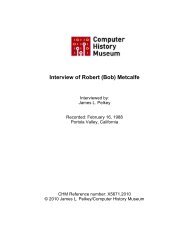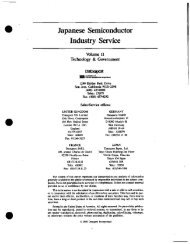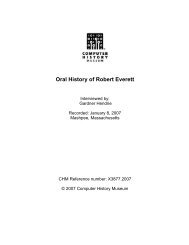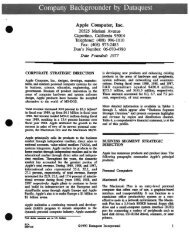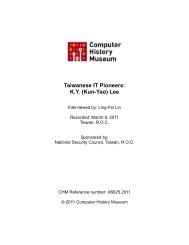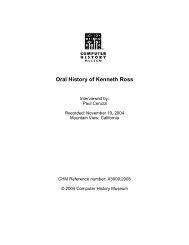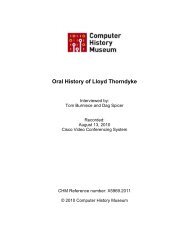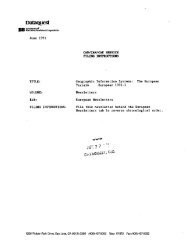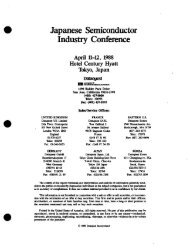ResearchNewsletter - Archive Server
ResearchNewsletter - Archive Server
ResearchNewsletter - Archive Server
Create successful ePaper yourself
Turn your PDF publications into a flip-book with our unique Google optimized e-Paper software.
through distribution, but the large investments required to be pan-European and- the<br />
declining profitability of the industry may turn out to be insurmountable hurdles for<br />
some companies.<br />
"Introductory Remarks on the European Renaissance"<br />
Jean-Marie Cadiou, Director of ESPRIT<br />
Commission of the European Communities<br />
The European IT industry has some weaknesses—it is dependent on non-European<br />
microprocessors and foreign chips—but it is looking better. ESPRIT 2 will produce<br />
0.5-micron CMOS ASIC and 0.5-micron SOI processes. Europe still needs an engineering<br />
culture to bring leading-edge chips to market. ESPRIT I's successes included a<br />
state-of-the-art BiCMOS process; spectacular results in the silicon compiler project;<br />
and the Supernode project, which produced parallel processing machines that beat Intel.<br />
Opportunities for Europe lie in HDTV, ISDN, and broadband communications networks.<br />
"Procuring in the 1990s"<br />
Dan Byrne, Director of European Operations<br />
Apple Computer<br />
Apple wants to be a truly European computer company. Since 1986, it has been<br />
doubling the annual amount of its European-sourced components. Recently that process<br />
has accelerated and in 1989, the company will source the same number of components<br />
from Europe in one quarter as it sourced in the whole of 1988. Apple's procurement<br />
requirements are as follows:<br />
• Shipment on an as-needed basis to fit with the Cork manufacturing plant's<br />
flexible production schedules<br />
• Apple works to 0.5 percent defects today and is moving to 0.05 percent in the<br />
early 1990s as part of its commitment to high quality<br />
• Competitive prices that are key to Apple, because 90 percent of its product<br />
cost is materials cost<br />
• New products/technology, because Apple has a total bias toward innovation<br />
and needs suppliers that can keep it ahead of the technology curve<br />
"A European in the International Scene"<br />
Heinz W. Hagmeister, Managing Director and CEO, Business Unit ICs<br />
Philips Components<br />
Fewer companies are buying more and more of the world IC output. These<br />
companies are multinationals that operate with local profit centers, but which demand<br />
worldwide pricing and high standards of service and quality. Currently, 15 companies<br />
buy 15 percent of the output of the semiconductor industry. These major customers are<br />
reducing the numbers of vendors that they deal with and thus require global servicing.<br />
Philips Components is responding by strengthening its presence in the Asia/Pacific region.<br />
© 1989 Dataquest Incorporated July ESAM Newsletter



